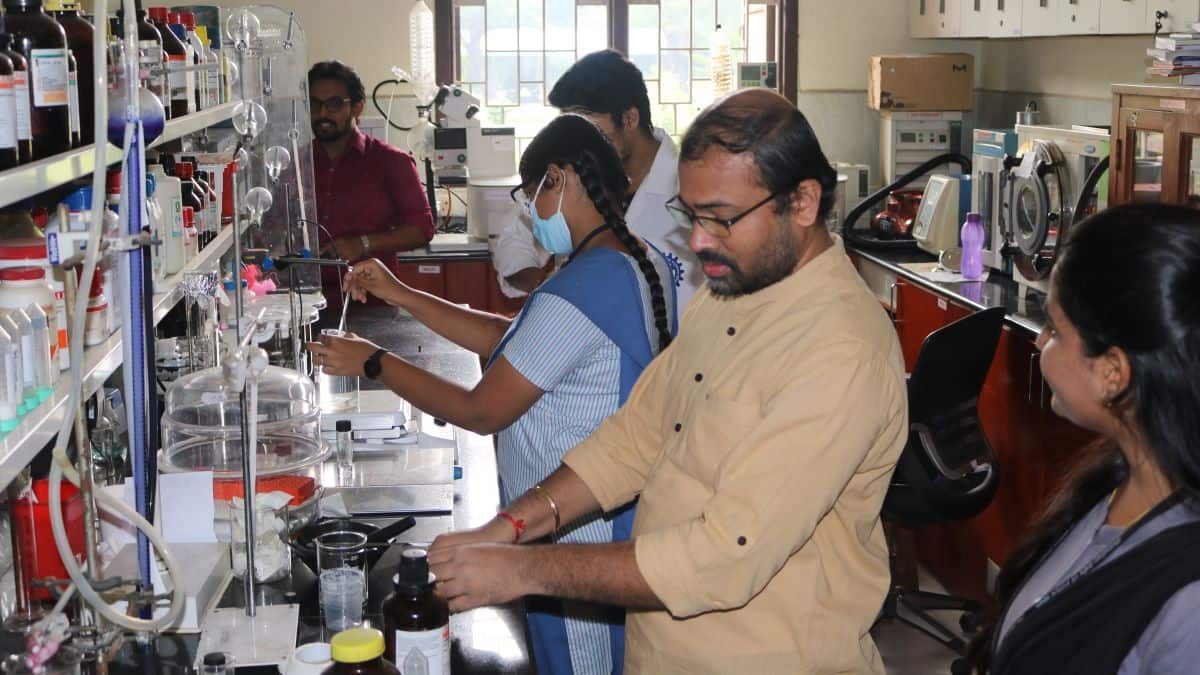PMRF 2.0: Parliamentary panel raps centre for 6-month delay in rollout, seeks ‘accelerated timeline’
Musab Qazi | August 12, 2025 | 06:49 PM IST | 4 mins read
Extend PMRF benefits to IIST Trivandrum, education ministry asked; panel flags underutilisation of ANRF fund, drop in CSIR scholar numbers; asks for ONOS update

A parliamentary committee has reprimanded the central government for failing to launch the second phase of the Prime Minister’s Research Fellowship (PMRF 2.0) six months after it was announced.
In a report submitted to parliament on Tuesday, the parliamentary committee on education, women, children, youth and sports, led by Congress leader and Rajya Sabha member Digvijaya Singh, has questioned the department of higher education under the union education ministry on the delay in expanding the research programme, which supports doctoral candidates in the country’s top institutes.
While the department claimed that the proposal to implement PMRF 2.0 is "under active consideration”, the panel sought an “accelerated timeline” to roll out the scheme. It also asked the government to extend the programme’s benefits to the Indian Institute of Space Science and Technology (IIST) at Thiruvananthapuram, as has been requested by the premier institute.
Also read Is the PMRF creating unequal fellows in India's elite research institutions?
PMRF 2.0 and ANRF
The recommendations are part of the panel’s 367th report, which seeks to assess the actions of various central government agencies regarding the committee’s earlier suggestions – tabled in the parliament in December 2023 – aimed at improving research and development activities around the country. The Rajya Sabha committee tabled the report in the parliament on Tuesday.
Started in 2018-19, PMRF has so far aided 3,688 fellows, each of whom gets a Rs 70,000 monthly grant besides Rs 2 lakh annually for other research-related activities. While the PMRF scheme was initially meant only for PhD students at the Indian Institutes of Technology (IITs) and the Indian Institute of Science (IISc), it was first expanded to the top 25 and then to the top 100 National Institutes of Technology (NITs), Indian Institutes of Science Education and Research (IISERs), Indian Institutes of Information Technology (IIITs) and central universities.
PMRF 2.0, announced by the finance minister Nirmala Sitharaman during her presentation of the union budget 2025-26, is aimed at funding 10,000 new fellows over the next five years. With a Rs 600 crore projected spending, the programme got a 71% hike in the current fiscal year.
The committee also sought to know the status of the Anusandhan National Research Foundation (ANRF), noting that the newly operationalised body had previously been unable to utilise its budgeted fund.
While ANRF, which is set to replace the Science and Engineering Research Board (SERB) as the apex agency for funding scientific research, was allocated Rs 2,000 crore in the financial years 2023-24 as well as 2024-25, the agency didn’t spend any amount in the former, while the budgetary estimates were revised to a mere Rs 200 crore in the latter. The Foundation is projected to spend Rs 50,000 crore over five years, 72 per cent of which would come from private sources.
Also read IIT Delhi placement drive for PhDs fetches jobs for less than 15%; students call for separate plan
One Nation One Subscription: No benefits to over 57%
The panel also asked for an update on the implementation of the One Nation One Subscription (ONOS) scheme, under which the government has centralised the subscription of research journals at government-funded education and research institutes around the country. In its March report, the committee had observed that 4,000 out of 7,008 beneficiaries hadn’t received the benefits of ONOS.
The committee also pulled up the department of biotechnology for its inadequate reply to a recommendation on enhanced collaboration and information sharing between central and state government agencies. To the department’s brief response that it had ‘noted’ the suggestion, the panel asked it to consider “putting in place a structure/working modalities in its organization” to facilitate coordination among funding bodies.
Elsewhere, the committee asks the department to inform about the steps it took to “bolster research infrastructure and sustain high-quality research endeavours effectively”.
The panel reviewed the government’s responses to 22 of its earlier recommendations. While the panel found that four of these suggestions have been accepted by the centre, it expressed satisfaction with eight other answers. However, it rejected six of the submissions made by the government bodies and sought more details for four other directives.
Also read Delayed fellowships, low budgets, lack of support making PhD scholars lose interest
Fewer CSIR scholars
The report reveals a gradual drop in the number of research scholars benefiting from the department of scientific and industrial research under the ministry of science and technology.
While 10,885 scholars had received funding under the Council of Scientific and Industrial Research’s (CSIR) ‘Capacity Building and Human Resource Development: Doctoral and Postdoctoral Fellowship’ programme in 2021-22, the number dropped to 9,185 in 2022-23 and 7,379 in 2023-24. These fellows get support for a tenure of three to five years.
The data was mentioned by the department while addressing the committee’s proposal to have a “comprehensive support framework” for scientific and related research in universities. The department also informed that CSIR is presently supporting 850 research projects, about 300 of which are funded to universities and colleges and while the rest are going to research and development (R&D) institutions.
The committee also found, as of July 2024, only 1,643 higher education institutions have established R&D cells. These include 42 central universities, 131 private universities, 56 deemed-to-be universities, 120 state universities and 1,294 colleges. The University Grants Commission’s (UGC), in March 2022, had issued guidelines for setting up these cells to strengthen the research ecosystem.
Follow us for the latest education news on colleges and universities, admission, courses, exams, research, education policies, study abroad and more..
To get in touch, write to us at news@careers360.com.